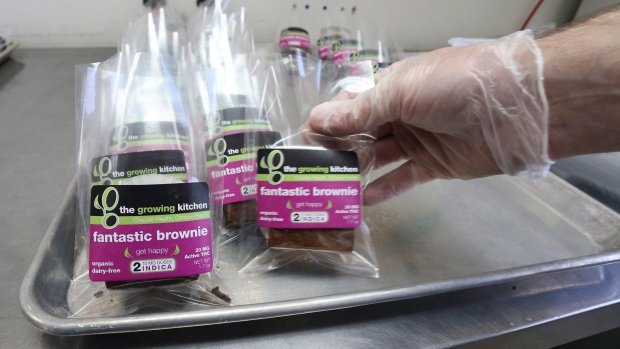New study: nearly half of Canadians would try edible cannabis products
Half of Canadians said they are interested in trying edible cannabis products when social cannabis is legalized, according to a new study led at Dalhousie University.
Sylvain Charlebois, Faculty of Management Professor and Specialist in Food Distribution and Policy, said the study contributes to research on the regulation of cannabis edible products in Canada.
In a survey of 1,087 people, researchers found 46 percent of Canadians would be willing to try cannabis-infused food products, from baked goods, to oils and spices if they were commercially available. The survey also found 39 percent of respondents would consider ordering a dish made with cannabis at a restaurant, but most would not know how to cook with cannabis at home.
“Curiosity seems to be driving consumers to want to try a food product, an edible, and the number one choice is bakery good,” Charlebois said.
The federal government plans to legalize social use of cannabis by July 1, 2018; however, only dried cannabis, cannabis oil, fresh cannabis, and cannabis seeds would be available for sale initially. The legalization of edible products such as cannabis-infused baked goods would be regulated at a later date.
Charlebois said the government needs to quickly make progress on the regulation of edible products, and educate Canadians about their risks. For example, over consumption could affect new cannabis users, who are unaware of the time it takes for the cannabis to take effect; and children may be attracted to candy, cookies and other edibles.
In addition, cannabis advocates believe Canadians will buy the products on the black market if they are not sold legally. There are many unregulated products, from cannabis cookies to cotton candy, that might be unsafe and rarely come in childproof packages, according to Health Canada.
In Ottawa, different kinds of cookies, brownies, gummy candies and other products have reached dispensary shelves and many boost high levels of THC, the chemical compound responsible for a euphoric high.
“If you allow the industry to manufacture these products under clear guidelines you will be at lesser risk,” Charlebois said.
To research Canadians’ attitudes toward social cannabis, the Dalhousie study also found 68 percent of Canadians support legalization. British Columbia was the most supportive at 79 percent, while those in the Prairies was the least at 54 percent.
Charlebois said, “I think we need to legalize edibles and make sure we have the proper regulatory framework to support it.”













